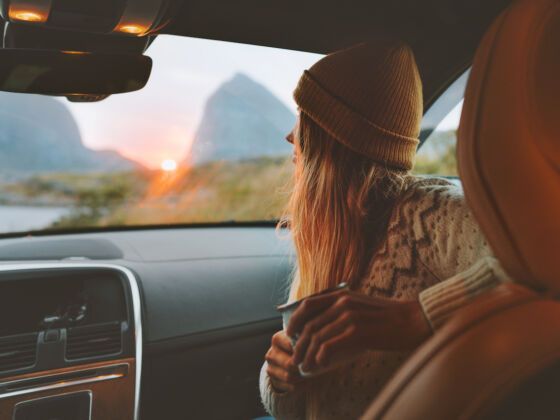The name for the USA in Chinese is Mei Guo (美國), which directly translates into “beautiful country.”1 The name suits the country well, as anyone who’s driven around the US can attest.
After spending a few years abroad, I became somewhat mystified by the American love affair with the automobile. Cars were indulgent and cumbersome when buses or trains were cheaper alternatives. It took a road trip of my own down the Pacific Coast Highway to reignite the romance. I’ve since racked up the mileage on my odometer exploring the forests and deserts of my home state of California. Traveling without a car hasn’t been the same.
